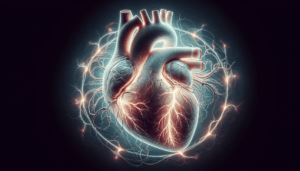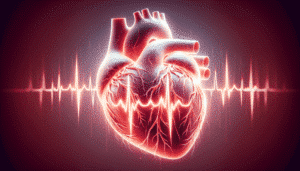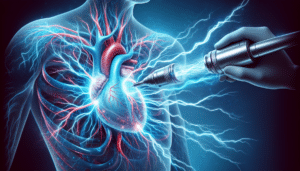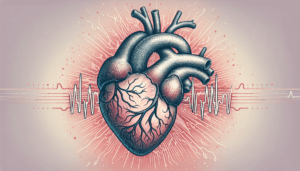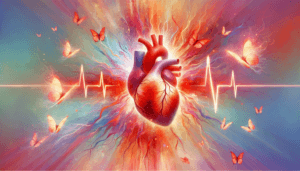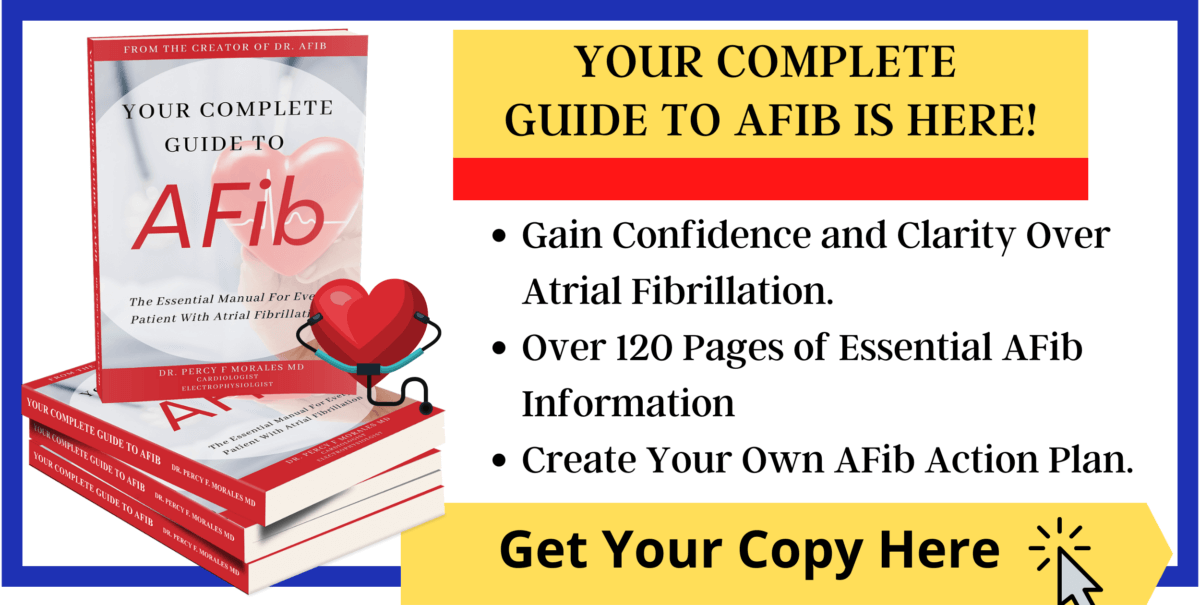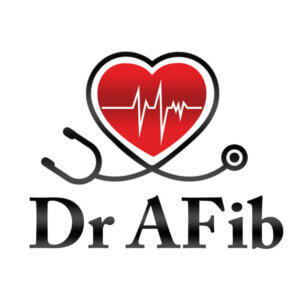Atrial fibrillation (AFib) is a common heart rhythm disorder that can disrupt your daily life. But what if you could manage its symptoms by simply making mindful changes to your diet and lifestyle, especially when experiencing AFib after eating? This doesn’t mean a life devoid of flavor or enjoyment, but rather, recognizing how certain foods and habits could potentially impact your heart health and adjusting accordingly. Let’s delve into the world of AFib management, one bite at a time, focusing on AFib after eating.
Key Takeaways
- Identifying and avoiding personal dietary triggers, like large meals, alcohol, caffeine, and certain foods, is crucial for managing AFib episodes and maintaining heart health.
- Adhering to a heart-healthy diet such as the Mediterranean or plant-based diet can reduce AFib risk factors, including high cholesterol and high blood pressure, and may even prevent or reverse AFib.
- Managing lifestyle factors including high blood pressure post meals through mindful eating, portion control, quality sleep, and stress reduction techniques is essential for preventing AFib episodes.
The Impact of Food on AFib Episodes

Every individual with AFib has a unique experience with the condition. For some, certain foods may be a trigger for AFib episodes. Typical dietary triggers include large meals, alcohol, and caffeine. Alcohol consumption, beyond just a casual drink, can elevate the likelihood of AFib episodes and contribute to heart disease, such as coronary artery disease.
In addition, maintaining appropriate hydration levels plays a key role in preventing AFib episodes, especially given the dehydrating effects of diuretic substances like caffeine and alcohol. Understanding and handling personal sensitivities to substances like caffeine is pivotal for effective AFib management. Avoidance of identified triggers can significantly decrease the frequency of AFib episodes.
Common Food Triggers
Fried foods, particularly in large quantities, have the potential to induce episodes of atrial fibrillation. Large meals, in particular, have been identified as a common food trigger for AFib.
On the flip side, incorporating leafy green vegetables into your diet can help prevent AFib episodes by providing essential nutrients and maintaining a healthy electrolyte balance. This is a perfect example of how simple changes to your daily diet can have a profound impact on your heart health.
Personal Sensitivities
Personal sensitivities to certain foods or substances can also contribute to AFib episodes. These sensitivities may include:
- Alcohol
- Caffeine
- Gluten
- Red meat
- Processed foods
- Sugary foods and drinks
- Excessive salt
An elimination diet can prove beneficial in pinpointing these sensitivities. This method involves removing foods that are known to cause symptoms, followed by a gradual reintroduction to observe if any symptoms reappear. It’s a proactive approach to manage your AFib, by giving you the control to understand your body’s unique reactions to certain foods and beverages.
Why Does Eating Cause Atrial Fibrillation? The Role of the Vagus Nerve
Eating, especially large meals, can sometimes trigger atrial fibrillation episodes. This is largely due to the activation of the vagus nerve, a critical part of our nervous system that connects the gut, brain, and heart. When we consume food, particularly in large quantities, the vagus nerve gets stimulated. This stimulation can potentially lead to changes in the heart’s rhythm, triggering an AFib event.
The vagus nerve plays a significant role in controlling the heart rate. Therefore, any substantial activation, such as that which occurs during digestion, can result in an irregular heartbeat or atrial fibrillation. This is why some people might experience AFib symptoms post meals.
It’s essential to note that everyone’s body responds differently, and not everyone with AFib will have episodes triggered by eating. However, being aware of this potential trigger can help in managing AFib effectively. It’s always recommended to maintain a balanced diet and avoid overeating to minimize the risk of triggering AFib post meals.
A Heart-Healthy Diet for AFib Management

Adopting a heart-healthy diet can significantly transform AFib management. Diets like the Mediterranean diet and plant-based diets prioritize ample intake of fruits, vegetables, and unsaturated fats, which can positively impact overall heart health and help lower cholesterol levels, subsequently reducing the risk of a heart attack.
Plus, cutting down on red meat, which is higher in saturated fats compared to white meat, can positively influence AFib management. Lowering saturated fat intake can aid in managing cholesterol levels, which is a critical factor in AFib risk management.
Mediterranean Diet
The Mediterranean diet is renowned for promoting heart health. It mitigates risk factors for heart disease, including high cholesterol and high blood pressure, thanks to its high content of monounsaturated fat from olive oil which aids in reducing levels of bad cholesterol.
What’s fascinating is that some research suggests that this diet may play a role in preventing or reversing AFib. Individuals adhering to a Mediterranean-style diet exhibit a decreased likelihood of developing AFib. Furthermore, this diet has a positive impact on platelet function in individuals with AFib, potentially leading to improved cardiovascular outcomes.
Plant-Based Diet
For individuals aiming to manage AFib, a plant-based diet is another superb option. This diet is characterized by the consumption of:
- vegetables
- fruits
- whole grains
- legumes
- proteins derived from non-animal sources
The benefits of a plant-based diet extend beyond just managing AFib. It can mitigate the risk of heart attack and stroke, and support overall heart health. With a wide variety of nutritious options, like Chickpea Pasta with Mushrooms & Kale and Vegan Curry Vegetables, you won’t be trading taste for health.
Reducing High Blood Pressure After Meals

High blood pressure, a risk factor for AFib, needs careful management, particularly post meals. Mindful eating involves being more conscious of the foods consumed and their salt content, which can ultimately contribute to better management of blood pressure levels, particularly after meals.
Engaging in mindful eating for AFib management involves prioritizing a healthy diet that includes fruits, vegetables, lean proteins, whole grains, beans, seeds, and nuts. It’s also advisable to consider a heart disease-specific diet with an emphasis on a variety of fresh produce.
Mindful Eating
Mindful eating transcends beyond merely what you consume to how you consume it. It encourages individuals to:
- Eat slower
- Pay more attention to the food they consume
- Incorporate lean proteins into their diets
- Thoroughly chew to aid in digestion.
By fostering adherence to a heart-healthy diet, mindful eating facilitates the control of high blood pressure, an integral aspect of blood pressure management. It’s a simple yet powerful way to better manage AFib after eating.
Portion Control
The size of meal portions can have an impact on blood pressure after meals. Consuming a large meal can temporarily elevate blood pressure by directing more blood to the digestive system to process the food intake.
Portion control significantly contributes to AFib management by enabling the inclusion of small amounts of usually limited foods and fostering healthier eating habits that endorse a consistent, heart-healthy diet.
The Role of Alcohol Consumption in AFib

Alcohol can be a double-edged sword when it comes to AFib. Consuming alcohol, even in moderation, has the potential to:
- Elevate the likelihood of AFib episodes
- Increase the risk of AF by 6% with just a 1 drink per day increase in alcohol consumption
- Exacerbate the risk for individuals with chronic alcohol use, leading to alterations in cardiac structure and function, such as cardiomyopathy, which can result in immediate effects on heart rhythm for individuals with AFib.
However, it’s not all doom and gloom. Quitting alcohol has the potential to reverse some of the effects on AFib. There have been documented cases where arrhythmias caused by increased alcohol intake were reversed, however, it is advisable to do this under medical supervision.
Sleep Apnea and AFib: The Importance of Quality Sleep
Sleep significantly impacts our overall health and is particularly vital for individuals with AfFb. Sleep apnea can lead to alterations in heart function and structure, including atrial enlargement, thereby heightening the likelihood of developing AFib.
Maintaining a healthy sleep pattern significantly decreases the likelihood of developing AFib, especially in comparison to individuals experiencing frequent insomnia, snoring, and daytime sleepiness. Therefore, it’s important to ensure you’re getting a good night’s sleep regularly.
Stress Management Techniques for AFib Prevention
Stress, although frequently overlooked, is a vital aspect to consider in AFib management. Chronic stress and anxious states can provoke AFib episodes through various mechanisms affecting both the initiation and severity of the condition.
Fortunately, there are stress management techniques available. Yoga, for instance, has been shown to reduce patient-reported symptoms of AFib, lower stress and negative emotions, and enhance the quality of life for patients with atrial fibrillation, thus contributing to the prevention of AFib episodes.
Other stress reduction techniques such as mindfulness or deep breathing can aid in reducing the frequency and intensity of AFib episodes by addressing emotional triggers and promoting a serene mental state, which can help prevent situations that may trigger AFib episodes.
The Impact of Caffeine and Energy Drinks on AFib

Caffeine and energy drinks, much like alcohol, can have a complicated interaction with AFib. Here are some key points to consider:
- Moderate caffeine intake has the potential to decrease the risk of AFib in certain individuals.
- However, excessive caffeine intake can trigger or worsen AFib symptoms in some people.
- It is important to monitor your caffeine intake and listen to your body’s response to determine what works best for you.
However, excessive consumption of too much caffeine or energy drinks can have adverse effects, contributing to serious heart conditions such as AFib. For individuals with a personal sensitivity to caffeine and AFib, it’s advised to abstain from consuming caffeinated foods and beverages to reduce the risk of potential AFib episodes.
Take Control Over AFib: A Streamlined Pathway to Reverse AFib
The Take Control Over AFib program is an all-encompassing guide that empowers individuals with atrial fibrillation (AFib) to proactively manage their health through strategic lifestyle modifications.
- Dietary Changes: The program offers heart-friendly food recommendations and guidance on avoiding AFib-triggering foods.
- Physical Activity: It provides tailored exercise plans based on an individual’s fitness level and health status.
- Stress Management: It includes various stress reduction techniques such as mindfulness, yoga, and deep breathing exercises.
- Sleep Hygiene: The program emphasizes the importance of sleep in heart health and offers advice on enhancing sleep quality.
By adhering to the program, individuals can make impactful changes that not only manage their AFib but also enhance their overall health and quality of life. Embrace the opportunity to take control over AFib and start your journey towards a healthier lifestyle today.
Learn More About The Take Control Over AFib Program Here.
Summary
We’ve journeyed through the world of AFib management, from understanding the impact of food and personal sensitivities, to exploring heart-healthy diets and the importance of portion control. We’ve learned about the role of alcohol, caffeine, and energy drinks, and the importance of good sleep and stress management in preventing AFib episodes. It’s clear that managing AFib isn’t just about medication, but a holistic approach that includes diet, lifestyle changes, and mindful practices. So, embrace these changes, not just as a way to manage AFib, but as a way to lead a healthier, more fulfilling life.
Frequently Asked Questions
Why does AFib start after eating?
Eating a large meal can stimulate the vagus nerve, which connects the gut, brain, and heart, potentially leading to AFib. This spike in the vagus nerve from eating can trigger an AFib event.
How do you stop heart palpitations after eating?
To stop heart palpitations after eating, consider reducing portions, cutting back on alcohol, drinking plenty of fluids, eating regularly, monitoring caffeine intake, and reducing salt and sugar intake. Making these dietary adjustments can help alleviate heart palpitations.
Can food affect atrial fibrillation?
Certain foods can trigger AFib symptoms, so it’s important to monitor your diet and avoid or limit certain foods to help manage atrial fibrillation. Consider adopting a Mediterranean or plant-based diet, reducing intake of saturated fat, salt, and added sugar for a potential reduction in AFib episodes.
What aggravates atrial fibrillation?
Atrial fibrillation can be aggravated by stress, alcohol, caffeine, certain exercises, and foods containing monosodium glutamate (MSG). Being aware of these triggers can help in avoiding them.
How can a Mediterranean diet help in managing AFib?
Adopting a Mediterranean diet can help manage AFib by addressing risk factors for heart disease such as high cholesterol and high blood pressure. It’s an effective way to support heart health.
The Best Atrial Fibrillation Book
Your Complete Guide To AFib: The Essential Manual For Every Patient With Atrial Fibrillation

Shop AFib Products on Amazon
KardiaMobile 6-Lead Personal EKG Monitor – Six Views of The Heart – Detects AFib and Irregular Arrhythmias – Instant Results in 30 Seconds – Works with Most Smartphones - FSA/HSA Eligible
13% Off
KardiaMobile 1-Lead Personal EKG Monitor – Record EKGs at Home – Detects AFib and Irregular Arrhythmias – Instant Results in 30 Seconds – Easy to Use – Works with Most Smartphones - FSA/HSA Eligible
$79.00 (as of June 16, 2025 15:14 GMT -06:00 - More infoProduct prices and availability are accurate as of the date/time indicated and are subject to change. Any price and availability information displayed on [relevant Amazon Site(s), as applicable] at the time of purchase will apply to the purchase of this product.)
Apple Watch Series 9 [GPS 41mm] Smartwatch with Storm Blue Aluminum Case with Silver Sport Band M/L. Fitness Tracker, Blood Oxygen & ECG Apps, Always-On Retina Display
(as of June 16, 2025 08:46 GMT -06:00 - More infoProduct prices and availability are accurate as of the date/time indicated and are subject to change. Any price and availability information displayed on [relevant Amazon Site(s), as applicable] at the time of purchase will apply to the purchase of this product.)
Fitbit Sense 2 Advanced Health and Fitness Smartwatch with Tools to Manage Stress and Sleep, ECG App, SpO2, 24/7 Heart Rate and GPS, Shadow Grey/Graphite, One Size (S & L Bands Included)
10% Off
OMRON 2-in-1 Upper Arm Blood Pressure Monitor & 1-Lead EKG Monitor - Clinically Validated Blood Pressure Arm Cuff & Machine - Use OMRON Connect App
24% Off
Samsung Galaxy Watch 6 44mm Bluetooth Smartwatch, Fitness Tracker, Personalized HR Zones, Advanced Sleep Coaching, Heart Monitor, BIA Sensor, Health Wellness Insights, Big Screen, US Version, Graphite
$353.21 (as of June 16, 2025 20:35 GMT -06:00 - More infoProduct prices and availability are accurate as of the date/time indicated and are subject to change. Any price and availability information displayed on [relevant Amazon Site(s), as applicable] at the time of purchase will apply to the purchase of this product.)
Natural Rhythm Triple Calm Magnesium 150 mg - 120 Capsules – Magnesium Complex Compound Supplement with Magnesium Glycinate, Malate, and Taurate. Calming Blend for Promoting Rest and Relaxation.
$20.77 ($0.17 / Count) (as of June 16, 2025 18:03 GMT -06:00 - More infoProduct prices and availability are accurate as of the date/time indicated and are subject to change. Any price and availability information displayed on [relevant Amazon Site(s), as applicable] at the time of purchase will apply to the purchase of this product.)
Pure Encapsulations Magnesium (Glycinate) - Supplement to Support Stress Relief, Sleep, Heart Health, Nerves, Muscles, and Metabolism* - with Magnesium Glycinate - 180 Capsules
$44.60 ($0.25 / Count) (as of June 16, 2025 08:46 GMT -06:00 - More infoProduct prices and availability are accurate as of the date/time indicated and are subject to change. Any price and availability information displayed on [relevant Amazon Site(s), as applicable] at the time of purchase will apply to the purchase of this product.)
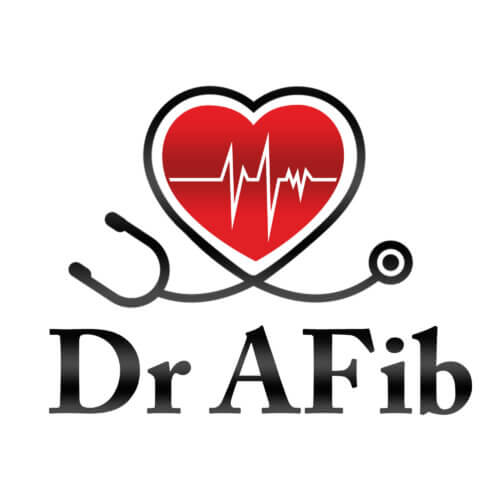














![Apple Watch Series 9 [GPS 41mm] Smartwatch with Storm Blue Aluminum Case with Silver Sport Band M/L. Fitness Tracker, Blood Oxygen & ECG Apps, Always-On Retina Display #1](https://m.media-amazon.com/images/I/311xwtp4mFL._SL100_.jpg)
![Apple Watch Series 9 [GPS 41mm] Smartwatch with Storm Blue Aluminum Case with Silver Sport Band M/L. Fitness Tracker, Blood Oxygen & ECG Apps, Always-On Retina Display #2](https://m.media-amazon.com/images/I/41j+8AaUGsL._SL100_.jpg)
![Apple Watch Series 9 [GPS 41mm] Smartwatch with Storm Blue Aluminum Case with Silver Sport Band M/L. Fitness Tracker, Blood Oxygen & ECG Apps, Always-On Retina Display #3](https://m.media-amazon.com/images/I/41jIyxZitnL._SL100_.jpg)
![Apple Watch Series 9 [GPS 41mm] Smartwatch with Storm Blue Aluminum Case with Silver Sport Band M/L. Fitness Tracker, Blood Oxygen & ECG Apps, Always-On Retina Display #4](https://m.media-amazon.com/images/I/41IpNJERjCL._SL100_.jpg)
![Apple Watch Series 9 [GPS 41mm] Smartwatch with Storm Blue Aluminum Case with Silver Sport Band M/L. Fitness Tracker, Blood Oxygen & ECG Apps, Always-On Retina Display #5](https://m.media-amazon.com/images/I/31o17yhfYpL._SL100_.jpg)





























